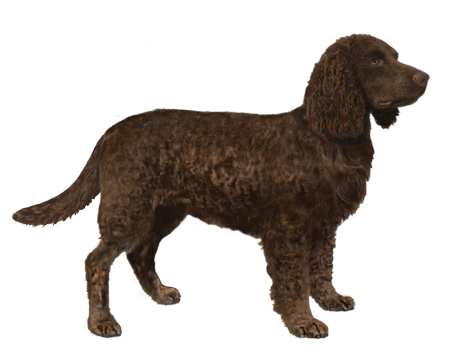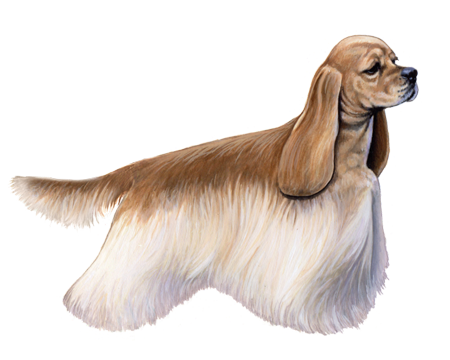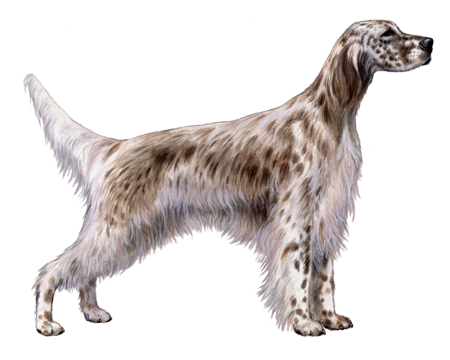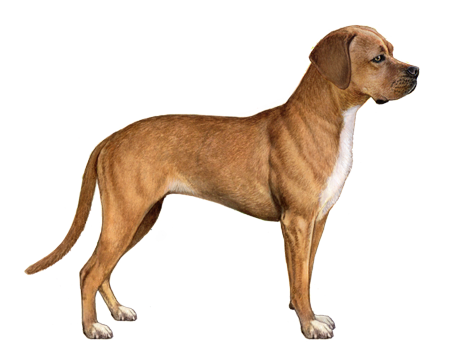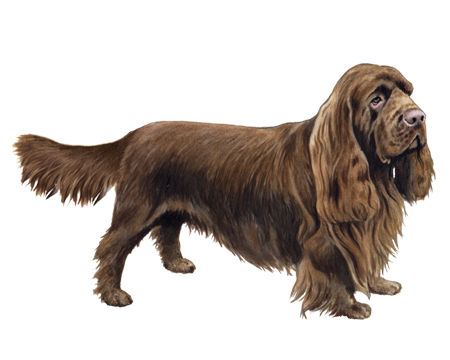
Weimaraner
The Weimaraner is an energetic, alert, and powerful breed. Large and loyal, these dogs are happy to work or play all day—as long as they have their favorite human by their side.
Interested in discovering if your dog is a Weimaraner?
Check out Wisdom Panel's DNA tests.

Weimaraner Traits
General Appearance
The Weimaraner's aristocratic features suggest grace, alertness, and balance. A medium-to-large breed, the Weimaraner has a sinewy, muscular body built for endurance and speed.
Coat and Colouring
A defining feature, the Weimaraner's sleek, short coat comes in a variety of silvers, from mouse gray to silver gray. A small patch of white on the chest and lighter shading around the muzzle and head are possible.
Distinctive Physical Traits
Weimaraners' ears are long and slightly folded. Their amber, gray, or blue-gray eyes offer an intelligent expression. Male Weimaraners have broader skulls and more angular muzzles than females.
Weimaraner Temperament
The Weimaraner is an active, loving, intelligent breed that adores being around people. These dogs don't do well when left alone for long periods. So, they're best suited for a home where they'll get plenty of attention and companionship.
Weims are very affectionate towards their family. They're also brave and competent guard dogs that alert their people—usually with a friendly bark—if something grabs their attention. Because of their exuberance, you should closely supervise your Weimaraner when they're around other dogs or children.
All the skills that make Weimaraners great hunting companions can also make them a nuisance to small pets and wildlife. They may chase or hunt other animals (including cats), and they tend to bark.


Weimaraner History
German nobles of the Court of Weimar developed the Weimaraner. Though no one knows exactly when this happened, many suspect the breed's history dates back to the 17th century. Regardless, the current breed standards didn't come about until the 1800s.
Weimaraners originally hunted big game—such as wolves, wildcats, cougars, and bears. Their stealthy, cat-like hunting style (and coat color) earned them the nickname "Gray Ghost." As Europe's populations of large predators declined, the breed found a new job pointing and retrieving game birds.
When developing the breed, German nobles tightly controlled its availability and allowed only those with high status to have the dogs. In the 1920s, the German government finally permitted a pair of Weimaraners to come to America.
The American Kennel Club first recognized the Weimaraner in 1943. It's since become very popular as a sportsman's dog and family pet. Weimaraners have also begun to serve as police dogs, rescue dogs, and therapy dogs.
Weimaraner Care
Nutrition
Weimaraners need to eat high-quality food that's appropriate for their life stage (e.g., puppy, adult, senior). A diet formulated specifically for large-breed dogs is a good option to consider.
All dogs are at risk for obesity if they overeat. And if there's one thing Weimaraners like to do, it's eat. To keep your pup at a healthy weight, monitor food portions, and cut back if they start to gain weight. And be sure to take treats into account when tracking their daily calorie intake. As a guideline, treats should make up no more than 10% of a dog's calories.
Also important to know: Weimaraners don't always limit the things they eat to food. For some dogs, rocks are a favorite snack. But eating rocks is harmful and, in some cases, can be deadly. So, keep an eye on your pup and immediately remove any non-food items they try to eat.
Finally, Weimaraners are more prone than other breeds to bloat (also known as twisted stomach). To help prevent bloat, break your dog's food up into several daily meals, and use a food bowl designed to slow their rate of eating. Avoid feeding them immediately before or after any kind of vigorous activity. These are just a few ways you can help prevent this life-threatening condition. Ask your veterinarian about other methods, including surgical options, for preventing bloat.
Grooming
Grooming a Weimaraner is a relatively low-maintenance job. Just brush your pup once a week to remove any loose or dead hair, and clip their nails regularly to prevent them from getting too long. (Overgrown nails can cause discomfort or lead to issues walking.)
Because of their long ears, Weimaraners may be more prone to ear infections than other breeds. So, as part of the grooming routine, also check and clean your dog's ears routinely to prevent infections.
Dogs need dental care, too—both professional and at-home dental care that includes daily teeth brushing. Maintaining good dental hygiene is essential for your Weim's overall long-term health.
Exercise
Weimaraners are not short on energy. As such, this breed requires a lot of physical activity. But when properly exercised, Weims are happy to relax on the couch alongside their favorite people.
Long runs, vigorous backyard play sessions, swimming, hiking, and retrieving games are great ways for a Weimaraner to burn energy. This breed also enjoys dog sports—such as flyball, hunt and field trials, agility, tracking, and both rally and competitive obedience.
Training
Weimaraners are quick learners that want to please their people. But sometimes, they want to satisfy themselves, too. Curb their tendency toward dominant behavior with firm but gentle training, starting at an early age.
In addition, socialize your Weimaraner as a puppy to help them grow into a well-adjusted adult dog.

Weimaraner Genetic Health Conditions
-
Hyperuricosuria
Hyperuricosuria (HUU) is a condition that predisposes affected dogs to the formation of urinary stones, such as kidney or bladder stones.
-
Hypomyelination
Hypomyelination is a neurological disorder causing muscle tremors and movement difficulties.
-
Craniomandibular Osteopathy (Discovered in the Weimaraner)
Craniomandibular Osteopathy (CMO), also known as "lion's jaw," is a disorder of bone growth, with bones of the skull most consistently affected. During the growth period, the jaw bones become swollen and thickened, causing pain, drooling, and difficulty eating. The associated genetic variant has been identified in the Weimaraner.
Knowing if your Weimaraner is a carrier or at-risk for these conditions can help you and your veterinarian plan for your pup's lifelong care. With Wisdom Panel™ Premium, you can get results for over 200 genetic health tests.
Breed Group
Sporting
The sporting group breeds are incredibly diverse in personality and appearance, but can be characterized as very sturdy. They were developed to work closely with people and in general have a very responsive nature and high intelligence.
Resources
https://www.akc.org/expert-advice/lifestyle/ways-weimaraners-are-like-no-other-dogs/
https://www.akc.org/dog-breeds/weimaraner/
http://images.akc.org/pdf/breeds/standards/Weimaraner.pdf
http://www.fci.be/Nomenclature/Standards/099g07-en.pdf
https://www.akc.org/expert-advice/dog-breeding/life-with-weimaraners-tips-from-a-breeder/
Reviewed 26 July 2020 by Cindy Elston, DVM, MPH




